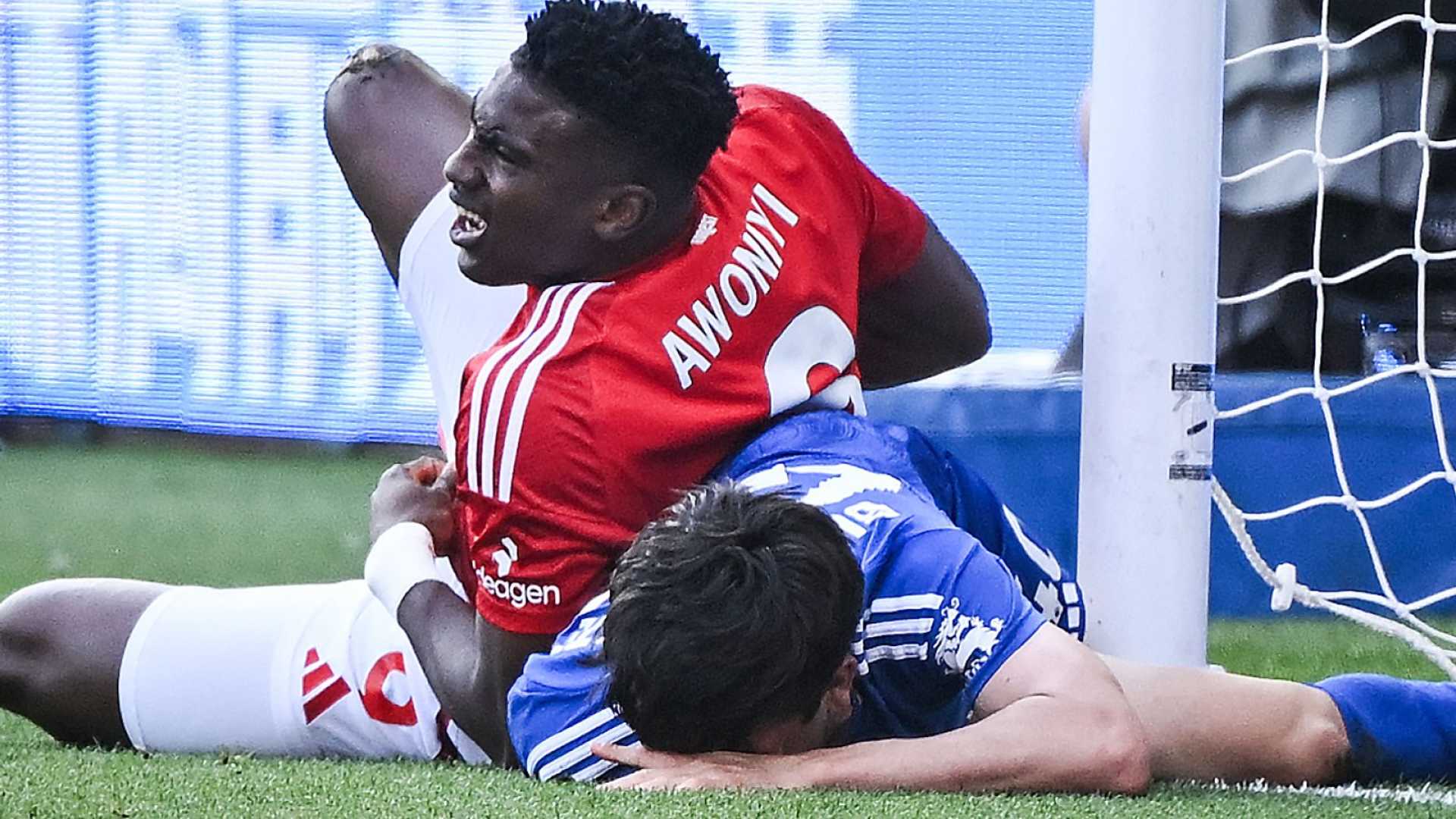Sports
Awoniyi Injury Sparks Debate on Delayed Offside Rule

Nottingham, England – A serious abdominal injury suffered by Nottingham Forest striker Taiwo Awoniyi has reignited a debate regarding the controversial ‘delayed offside’ rule in football. The 27-year-old injured himself while attempting to score in a match against Leicester City at the City Ground last weekend, leading to critical discussions among players, coaches, and officials.
During the match, Awoniyi collided with the goal post while chasing a cross from teammate Anthony Elanga. After the play, Elanga was flagged for offside, which raised questions about the timing of the decision. Awoniyi, who was clearly in pain, was assessed by medical staff and allowed to continue playing despite the injury.
The International Football Association Board (IFAB) introduced a directive for the delayed offside flag during the 2020-21 season, allowing assistant referees to keep their flags down if they believe there is a clear goal-scoring opportunity. This protocol aims to prevent premature stoppages in play but has faced criticism since its inception for potentially leading to injuries.
Earlier incidents, including injuries to players like Wolverhampton’s Rui Patricio and Manchester City’s Ederson, alongside Awoniyi’s case, have highlighted the risks associated with delayed calls. Leicester manager Ruud van Nistelrooy expressed concern about the protocol, stating, “When it’s so clear, then put the flag up. If it’s obvious, clear and obvious, stop the players sprinting.”
Awoniyi was subsequently placed into a medically induced coma and underwent emergency surgery for a ruptured intestine. As of now, he is reported to be awake and recovering, surrounded by family.
The Professional Footballers’ Association (PFA) plans to call for a review of the offside rule, emphasizing the necessity of balancing game flow and player safety. A PFA source stated there is broad belief that clear offsides should be flagged immediately to prevent serious injuries like Awoniyi’s.
This situation has put pressure on the Professional Game Match Officials Limited (PGMOL) and IFAB to reevaluate existing protocols. Discussions about revising the delayed flag rule are expected as the football community grapples with preserving the integrity of the game while ensuring players’ well-being.
Awoniyi’s injury and subsequent recovery will likely continue to serve as a focal point for discussions at the highest levels of football governing bodies.












